Educators/Non-Profits hold the key to our future
November 22, 2011So you’ve made a film. Congrats!! That’s it then. You’re done, right? Time to move on to the next project…
Well, yes — thanks to all the people who helped you realize your vision, your film is now complete. But you soon discover that all the collective time and energy that went into finishing your project was just to get you to the START line. And so the journey of finding your audience begins…
As we consider the outreach and distribution potential for A Lot Like You, I realize that our timing could not be better. In the old-school model of distribution, movie studios were the gatekeepers between filmmakers and their audiences. But the tides are turning. The digital age is radically dismantling this old model, offering filmmakers much more control over how their film makes its way out into the world.
With venues ranging from film festivals, theatrical screenings, educational distribution, international market, cable, PBS, video-on-demand, digital downloads, webisodes–you are limited only by your time, imagination and resources. And this “new world of distribution”, as Peter Broderick calls it, is as liberating as it is daunting.
When our creative team met earlier this year to discuss our vision for how our film would find its audience, ideas started pouring out–joint screenings with non-profits, campus screenings, facilitation guides, skype-ing in to classroom discussions, speaking at conferences, and creating online spaces where our audience, filmmaking team, and activists could connect directly. And as we talked, our priorities started to emerge.
Our primary goal is to harness the power of our story to ignite dialogue and invite deep introspection. We’ve all experienced the ripple effect of truth-telling that this film is bringing about. What we need is a way to harness this momentum effectively so it can contribute to the groundswell that leads to change. What we want is to create as many opportunities as possible to engage with our audience directly.
And we discovered the key to realizing this vision lay in my activist background. Over the past 20 years, I have built relationships with local and national non-profit organizations, particularly those working within underserved communities to address social and economic justice issues. These connections are now coming full circle as we look ahead to how we can maximize our film’s reach and impact.
So for those of you wondering why on earth I’m still writing grants when we already have a finished film…here’s a brief overview of the future we envision for our film:
In the coming year, we will be:
~ Reaching out to non-profits/NGOs to find new ways of using this film as a tool for advancing their organizational missions.
~ Forming a Curriculum Advisory Board comprised of our educator, activist and non-profit allies who will help us :
1) Develop a companion curriculum for our film.
– help frame the conversation on their area of expertise
– suggest classroom exercises & facilitation questions
– connect viewers (and teachers) with relevant research and resources.
2) Produce video shorts that will deepen the exploration of various topics in our film, including:
– Multi-culturalism/Diversity
– Exploring Identity
– Mixed race / 3rd culture experience
– Gender violence/Trauma
– Global women’s issues
– Girls’ empowerment
– Personal storytelling/Memoir writing
– Migration
~ Editing a 52-min version of our film for TV broadcast, classroom use, conferences,
and international distribution.
~ Traveling to festivals, conferences, campuses–raising awareness about the issues in our film is far more effective when members of the filmmaking team
are available to personally connect with audiences following a screening.
~Developing a more robust, online presence that will allow us to
engage directly with our audiences worldwide, and help move our viewers from awareness to action.
Our longer-term community engagement goal is to use the power of our story to initiate conversations about the “intersectionality” of race, class, gender, sexuality and trauma in forming one’s cultural identity. (More on this topic coming soon…) Right now, my activist circles are hungry to talk about our broad-based, progressive, social-justice movement from this integrated perspective. This film offers a unique lens that can help frame these conversations and bridge our various movements by examining how we occupy those “spaces in between…”
So ultimately, we hope to use the power of our story to create a more fluid and integrated understanding about the complexities of working towards social and economic justice.
**If you have thoughts or ideas about our Education/Outreach/Engagement efforts,
please contact Eli at ekimaro(at)alotlikeyoumovie(dot)com. **


One Response to Educators/Non-Profits hold the key to our future
Pingback: 12/10/2011 ~ ADIFF Panel Discussion ~ Monetizing Independent Cinema | alotlikeyoumovie